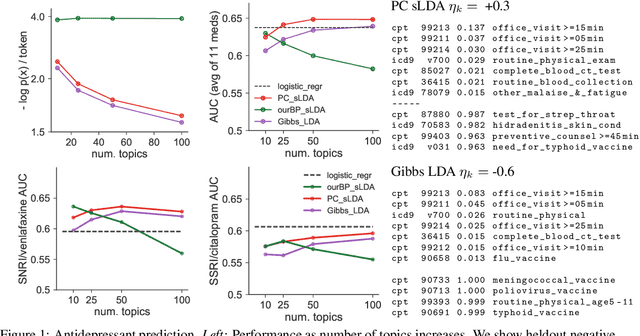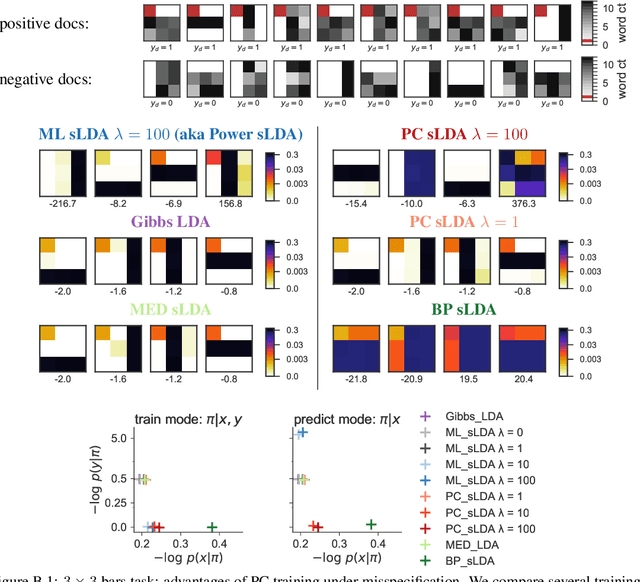Thomas H. McCoy
Prediction-Constrained Topic Models for Antidepressant Recommendation
Dec 01, 2017

Abstract:Supervisory signals can help topic models discover low-dimensional data representations that are more interpretable for clinical tasks. We propose a framework for training supervised latent Dirichlet allocation that balances two goals: faithful generative explanations of high-dimensional data and accurate prediction of associated class labels. Existing approaches fail to balance these goals by not properly handling a fundamental asymmetry: the intended task is always predicting labels from data, not data from labels. Our new prediction-constrained objective trains models that predict labels from heldout data well while also producing good generative likelihoods and interpretable topic-word parameters. In a case study on predicting depression medications from electronic health records, we demonstrate improved recommendations compared to previous supervised topic models and high- dimensional logistic regression from words alone.
 Add to Chrome
Add to Chrome Add to Firefox
Add to Firefox Add to Edge
Add to Edge